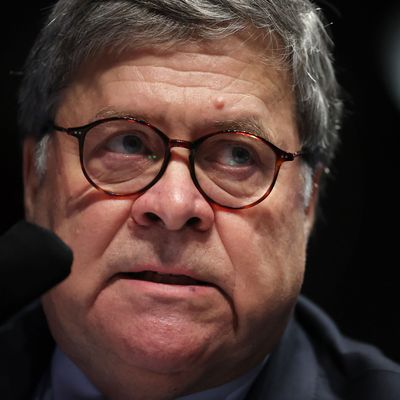
Throughout the summer of unrest, federal prosecutors have charged over 200 demonstrators with violent crimes alleged to have taken place at protests against police brutality. The charges, ranging from arson to assaulting federal officers, could soon be elevated to even more serious felonies, according to a report from The Wall Street Journal.
In a conference call with U.S. attorneys across the country last week, Attorney General William Barr reportedly told his audience that they should be especially aggressive when considering charges for protesters accused of violence. The most serious charge he mentioned was sedition, a high crime considering the likely intent of most demonstrators alleged to have engaged in violence. As The Wall Street Journal notes, getting a charge of conspiracy to overthrow the government to stick in court would be difficult:
To bring a sedition case, prosecutors would have to prove there was a conspiracy to attack government agents or officials that posed an imminent danger, legal experts said. They added that there is a fine line between the expression of antigovernment sentiment, which could be protected speech under the First Amendment even if it included discussions of violence, and a plot that presented an imminent danger and could justify a charge of sedition.
It’s not the first effort that the Attorney General has made this month, in an attempt to apply Trump’s law-and-order messaging, that is unlikely to hold up in a court of law. In early September, the White House announced that Barr would establish a task force to determine if the federal government could cut funding to “anarchist jurisdictions,” including New York, a memo that one former Office of Management and Budget official called a “campaign document.”
Even if prosecutors eschew the sedition charges due to their difficulty to prove, Barr’s order could have major repercussions for demonstrators still on the street. “If you start charging those people, even if you don’t get a conviction, it may make people think twice before going out to exercise their right to free speech,” Jenny Carroll, a University of Alabama law professor, told The Wall Street Journal. Barr reportedly has future demonstrations in mind as well, warning U.S. attorneys on the call that he anticipated that protests could intensify ahead of the election.






























